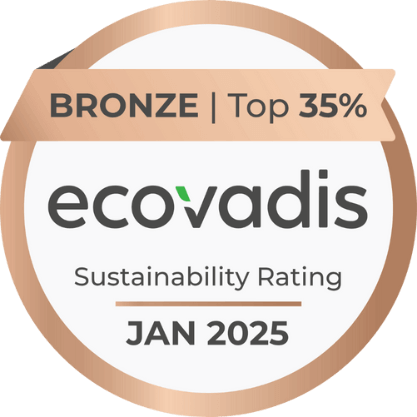Navigating the Complexities of Semiconductor Sustainability Reporting
![]()
Sustainability reporting is a critical, yet challenging, undertaking for businesses across all sectors. The semiconductor industry, however, faces a unique set of hurdles, both technical and regulatory, as it strives to accurately and consistently measure and report its environmental impact. Companies throughout the semiconductor value chain are actively seeking best practices for capturing semiconductor manufacturing emissions with a reliable and repeatable process.
The global landscape of ESG (Environmental, Social, and Governance) reporting requirements is complex and constantly evolving. The European Union, with its Corporate Sustainability Reporting Directive (CSRD) and Corporate Sustainability Due Diligence Directive (CSDDD), has emerged as a leader in driving reporting measures. However, even within the EU, recent concerns raised by member states highlight the difficulties of implementing such sweeping regulations. Canada's recently introduced sustainability disclosure requirements, aligned with the International Sustainability Standards Board (ISSB) framework, demonstrate a growing global trend towards standardized reporting. However, uncertainty about future regulatory environments, especially concerning international agreements and domestic environmental agencies, add a layer of complexity for businesses attempting to support green tech goals and plan long term strategies for sustainability reporting.
Reporting on semiconductor manufacturing emissions presents a distinct set of challenges. These include operations that inherently consume large amounts of electricity and water; as well as working with complex global supply chains where there is often a lack of standardized ESG reporting practices among suppliers. At the same time, varying global regulations mean that companies face a patchwork of differing regulatory frameworks across various regions (e.g., EU, U.S., Asia), further complicating sustainability reporting.
Add the technical challenges associated with accurately measuring emissions, resource use, and waste disposal, and companies quickly understand the requirement for significant infrastructure investment and adoption of robust data management systems.
Leading semiconductor companies have openly acknowledged these difficulties. For details on what such companies as Intel, TSMC, NVIDIA, and Texas Instruments are doing to meet varying reporting standards, read the full TechInsights report.
Despite these challenges, sustainability reporting is becoming increasingly vital. Regulatory pressures, investor expectations, and the growing importance of corporate social responsibility are all driving this trend. Companies that successfully navigate these complexities stand to gain stronger reputations, mitigate risks, and enhance long-term profitability.
So, how can semiconductor companies overcome these hurdles? A multi-pronged approach is essential:
- Leverage Technology: Automating data collection and integration through specialized software can streamline the process and improve accuracy. Real-time tracking of resource usage across manufacturing sites is essential, particularly for foundries.
- Industry Collaboration: Partnering with data providers and industry groups to adopt standardized reporting frameworks enables more consistent and comparable data collection.
- Alignment with Global Standards: Focusing on relevant standards like SASD, GRI, TCFD, and CSRD/ISSB ensures that reporting meets or exceeds global benchmarks.
- Reduce Environmental Footprint: Reducing energy and water consumption through investment in renewable energy sources and water recycling initiatives is crucial for meaningful sustainability improvements. The move toward green tech becomes a pivotal strategy in lessening environmental burdens.
The transition toward green tech isn't simply desirable but is becoming a necessity for continued growth and innovation. The semiconductor industry's future is closely tied to its ability to embrace and implement sustainable practices.
To read more about the data challenges and steps being taken by companies in the semiconductor industry to comply with reporting requirements, read the full report on the TechInsights site.













